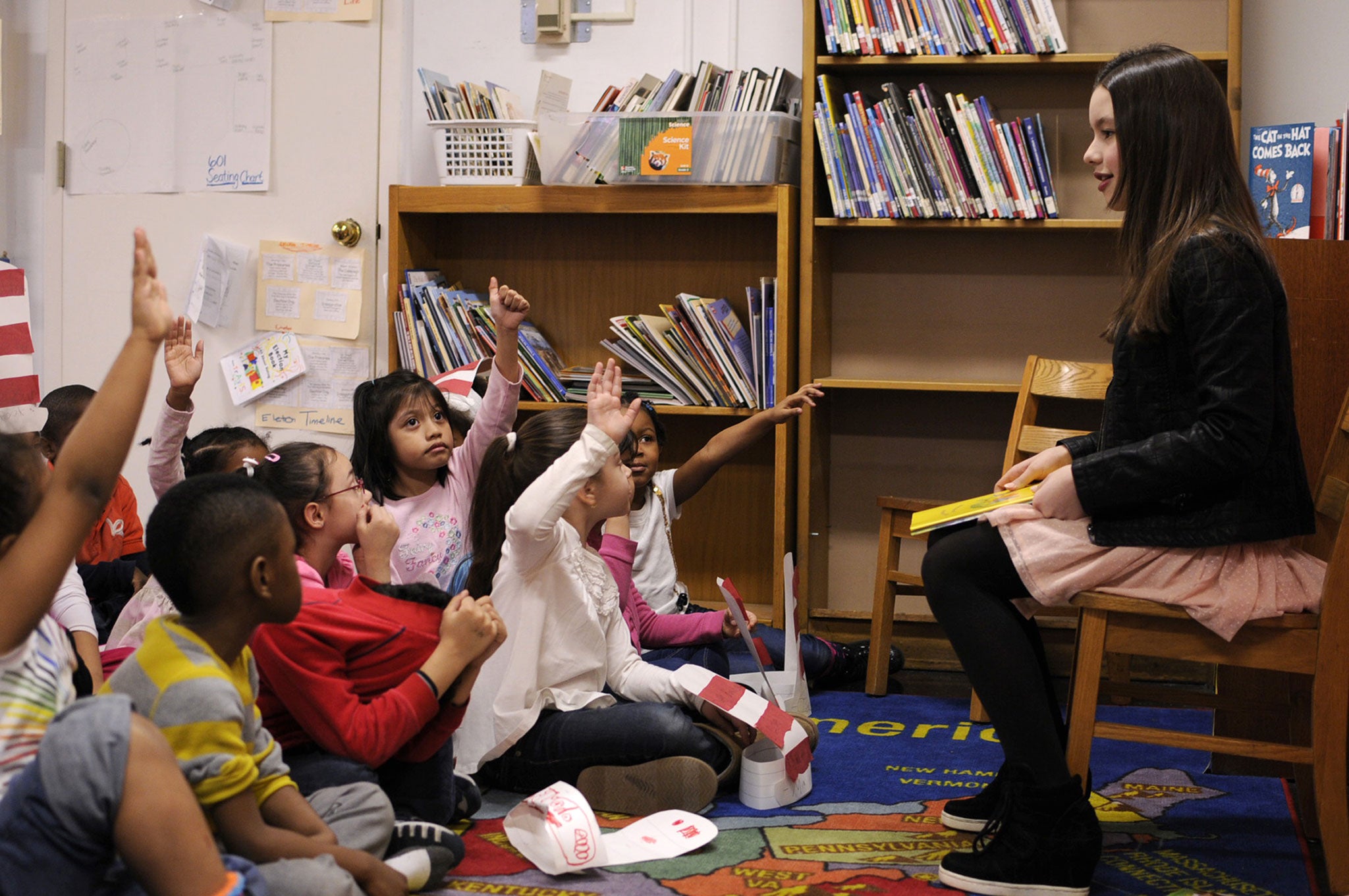The Independent's journalism is supported by our readers. When you purchase through links on our site, we may earn commission.
An alternative nativity play: Invest in early learning, and the circumstances of a child's birth won't matter so very much
Teach First has turned its attention to the very young. But more is needed

Were I a nursery teacher, and unafraid of being sectioned, this is the play I would like to put on come the 2014 nativity season. On to the stage head a troupe of toddlers. They are not dressed as shepherds, or kings, but in home clothes. One three-year-old, sporting a Ralph Lauren overcoat, speaks as fluently as an infant can about her hopes and dreams for adulthood, dropping in a couple of big words. Her parents clap wildly. Another steps forward. He mumbles through this script:
“I was born into a poor household, so statistics say I will end up poor. The best years to stop this from happening are not in primary school, or secondary school, but now – before I can even walk in a straight line”.
He zigzags into the wings. Curtain.
Questions of taste aside, the message of this Brechtian piece of pre-school theatre – that children from disadvantaged families fall behind their wealthy peers from 12-months-old, and rarely recover - is one that has not generated the sustained hoop-la that its wretched and growing level of proof deserves. At the age of three, a US child of college-educated parents knows around 1,200 words. A child of parents on welfare uses 400. The achievement gap usually turns into a chasm over time.
This weekend it was reported that the charity Teach First has begun to employ university graduates to chat with and educate children still shedding their baby fat, with 20 university-leavers already at work. A terrific plan. And yet the championing it has received from the Coalition sits a trifle awkwardly with some of their other work in Westminster.
Sure Start centres were set up by Labour in 1999, targeted initially at deprived neighbourhoods. These centres offered (and still do) education, parenting and childcare support for pre-schoolers. In 2010, David Cameron gave every indication that he would not let them close. “We back Sure Start,” he said. “It’s a disgrace that Gordon Brown has been trying to frighten people about this.” But despite these words, almost 600 of the 3,631 centres that existed before the election have now been shut, with local councils – under budget pressure - choosing to slash funding. It will take more than a handful of Teach-Firsters to fill that void.
With the rewards of early-years intervention as startling as they are, the real surprise is how little attention they receive. The Family Nurse Partnership – already supporting around 11,000 mothers in the UK – has cross-party support, but needs a great deal more trumpeting. It is a replica of an American project. When US nurses regularly visited vulnerable first-time mothers, offering them parenting support for two years, children were 58 per cent less likely than their peers to have been convicted of a crime by age 19. 58 per cent! The evaluation is water-tight. These toddlers grew up smarter, too. Their horizons weren’t so limited by the accident of their birth. If we want to get social mobility rolling again in this country, this project and others like it must be put centre-stage in our education system. They pay back over and over again.

Join our commenting forum
Join thought-provoking conversations, follow other Independent readers and see their replies